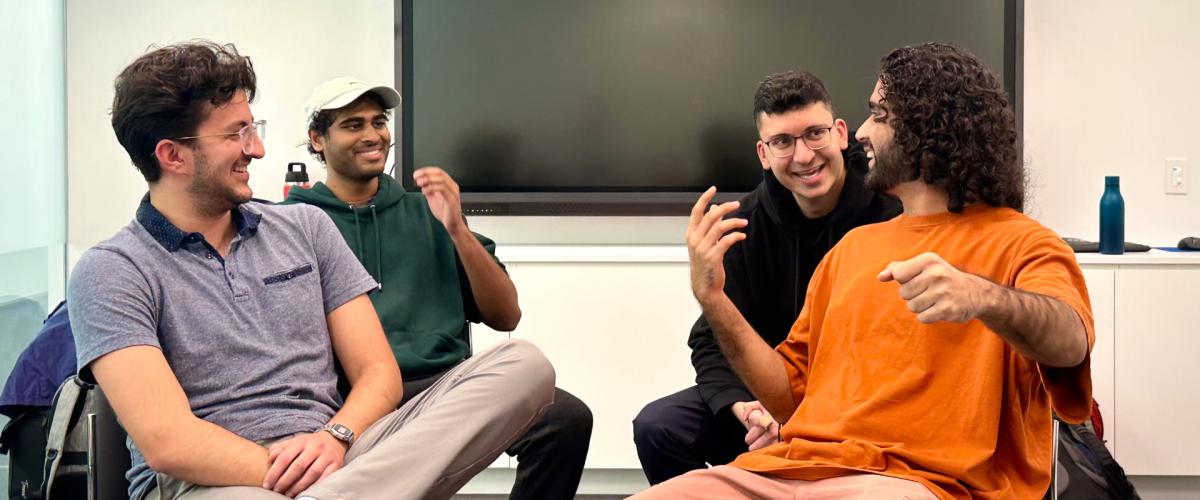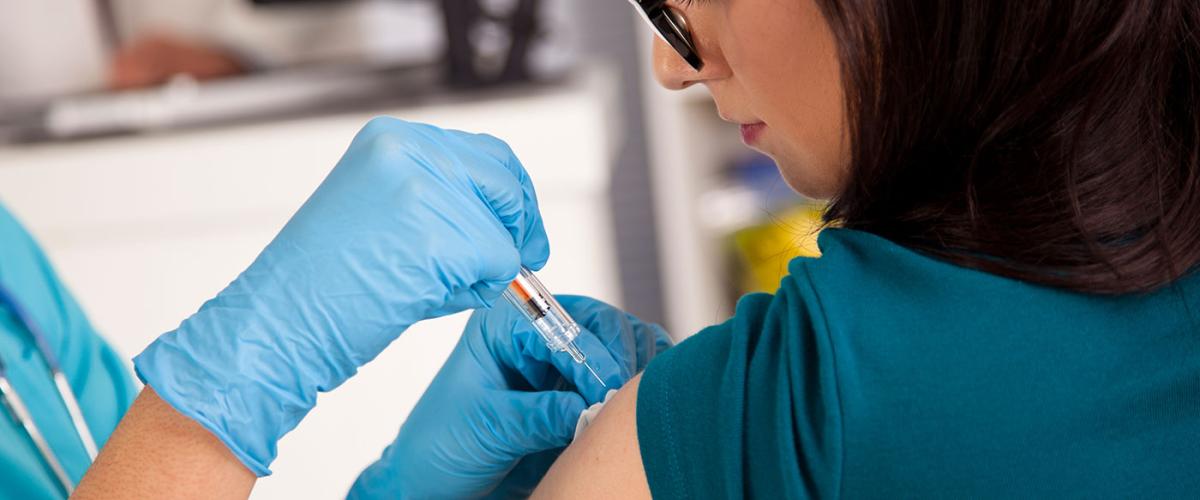Step behind the curtain to meet the student directors of Doc Opera 2025
For the 41st year, Case Western Reserve University School of Medicine students are putting down their stethoscopes and picking up their props to perform in Doc Opera, a variety show of skits, musical performances and dances about medicine and healthcare that raises funds for the university’s student-run health clinics, including the Student Run Health Clinic and the newly established Horizons Community Clinic. Tickets for this year’s show on Saturday, Dec. 13, at John Hay High School are available for purchase, with a $5 livestream option for those who cannot attend in person.
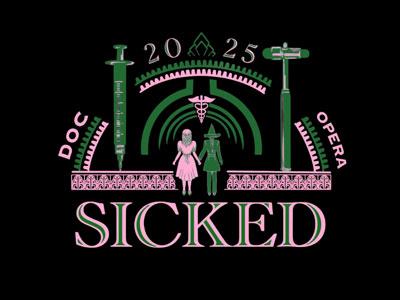
Doc Opera 2025: Sicked is based on Wicked, the Gregory Maguire novel and Tony Award-winning musical that was recently turned into two movies. It tells the story of Glinda and the Wicked Witch of the West before the happenings of The Wizard of Oz, revealing that the two were actually friends in school. The tale reminds us that people are not always what they seem and that the road to wickedness (or, in this case, sickedness) can be paved with good intentions.
The show couldn’t go on without the intensive planning and grueling rehearsing from the students, so we spoke with the directors to learn more about what inspired them to find time in between their studies to continue the Doc Opera tradition.
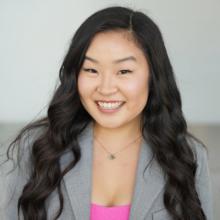
Elyssa Kim, Production Director
University Program, Class of 2028
What made you decide to join Doc Opera?
Before coming to medical school, I worked in film and commercials in Los Angeles and have classical voice training and musical theater experience. When I heard about Doc Opera, I immediately knew I wanted to get involved. Last year, I had an incredible time getting to know new people, laughing over forgotten choreography and chaotic costume changes, and helping create something meaningful for a great cause. When I was given the opportunity to serve as production director, I wanted to help other students experience that same joy, build community across classes, and continue this amazing 41-year tradition.
What is your favorite part of Doc Opera?
Getting to know students from all the classes and sharing such a fun, creative study break together! It’s a rare opportunity to connect across cohorts outside the classroom.
How do you balance a rigorous academic schedule and Doc Opera?
Having an amazing and supportive director and faculty team makes all the difference! Doc Opera is truly such a joy. It feels less like an obligation and more like the perfect study break that keeps me energized and balanced during the semester.
What skills from medicine help you in Doc Opera—and vice versa?
Case Western Reserve University School of Medicine really emphasizes communication, collaboration and professionalism in the patient room—all of which translate beautifully to the stage. Likewise, performing in Doc Opera strengthens my creativity, confidence under pressure and team-building, which I carry right back into my clinical and academic life.
Why is it important to raise funds for CWRU's student-run health clinics?
Our student-run clinics are an incredible resource for the Cleveland community, and this year, with the addition of new clinics like Horizons, we’re expanding access to care even further. These clinics are entirely volunteer-run, so funds directly support medical supplies, outreach and other essential resources that make it possible for students to provide high-quality, compassionate care.
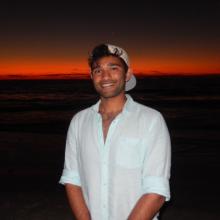
Aditya Katewa, Co-Tech Director
University Program, Class of 2028
What made you decide to join Doc Opera?
At first, a lot of my friends had joined Doc Opera to participate in the dances or sing. When I found out about the tech team, I realized that was my perfect blend of getting to work with my friends in putting on a spectacular show while also working behind the scenes and supporting others. I was able to volunteer with the tech team my first year of medical school, and the people I worked with really had a passion for putting the show together! It was infectious, and it made me want to figure out how I could contribute more to the production.
What is your favorite part of Doc Opera?
My favorite part of Doc Opera is the faculty dance— it's always really fun to see professors and retired physicians outside of the usual academic context having fun and participating with the students.
How do you balance a rigorous academic schedule and Doc Opera?
A lot of it comes down to setting a good schedule and communicating with my peers when my schedule becomes a little too hectic. Otherwise, I try to set deadlines for myself to make sure that I can meet my responsibilities for research and classes with my duties for Doc Opera.
What skills from medicine help you in Doc Opera—and vice versa?
I think a huge portion of the show is about teamwork and collaboration—skills that are essential for both Doc Opera and any professional pursuit. In addition, there are times when unexpected hurdles come up in planning a show, and developing that flexibility and capacity to adjust is important for a lot of things.
Why is it important to raise funds for CWRU's student-run health clinics?
Student-run health clinics at CWRU accomplish a lot of pretty admirable goals, and there is a lot of time and funding that is put into it. Whether it's bandages and gauze for the Knock Your Socks Off clinic or making sure that we can get more blood pressure cuffs for a community health clinic, being able to support these groups is an important goal.
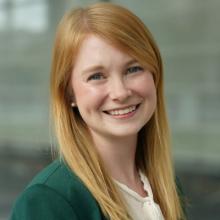
Victoria Grayson, Co-Dance Director
University Program, Class of 2028
What made you decide to join Doc Opera?
I danced for over 10 years growing up and really missed it, so joining Doc Opera felt like the perfect way to reconnect with that passion while doing something creative outside of academics.
What is your favorite part of Doc Opera?
My favorite part is meeting other medical students and forming friendships through rehearsals. It’s such a fun and collaborative way to get to know new people and get advice for school while doing something really fun!
How do you balance a rigorous academic schedule and Doc Opera?
Google Calendar is my best friend! I make sure to plan ahead on my studying so I can come to dance practice with as clear a mind as possible. Doc Opera is my favorite kind of study break, and I welcome the chance to recharge while doing something active and enjoyable.
What skills from medicine help you in Doc Opera—and vice versa?
Learning to describe the body and its movements clearly helps when teaching choreography, and communication skills like teach-back are invaluable to making sure everyone is understanding the steps. On the flip side, Doc Opera’s creativity and teamwork definitely carry over into how I approach problem-solving in medicine.
Why is it important to raise funds for CWRU's student-run health clinics?
These clinics provide essential free care to community members who need it most, and the funding ensures that this care can continue without interruption.
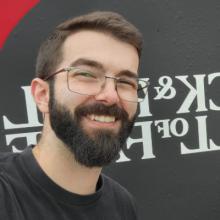
Chris O’Neill, Co-Band Director
University Program, Class of 2028
What made you decide to join Doc Opera?
I really missed being able to participate in musical ensembles during my gap years, and Doc Opera provided an amazing opportunity to be able to get involved with music again! I've been playing instruments for nearly 20 years, and I love playing with other people, so when I got the opportunity to join the Doc Opera band, I didn't even hesitate to put my name down for basically every song!
What is your favorite part of Doc Opera?
There's something magical about seeing all the hard work you and your friends put together in the fall come together during tech week, with everyone playing, singing and dancing to lyrics we wrote and music we arranged—something about all the pieces coming together lights a spark in my heart every single time.
How do you balance a rigorous academic schedule and Doc Opera?
Intentionality, careful planning and time management, and a few good old-fashioned late nights (but not too late). We're very much fueled by passion here, and that goes a really long way!
What skills from medicine help you in Doc Opera—and vice versa?
Clear communication is a huge help—that's something we emphasize in communications workshops at CWRU that goes a long way with making Doc Opera planning more straightforward. From Doc Opera to medicine, it's a big help to be able to plan things out, but also change plans on the fly where needed.
Why is it important to raise funds for CWRU's student-run health clinics?
The student-run health clinics do a lot of good work in the community—in addition to acute concerns, one of the big roles they fill is connecting people to accessible primary care. Helping start that longitudinal patient-clinician relationship is hugely transformational for the folks we serve and has a real positive impact on their health and their lives more broadly. Fundraising allows us to help the clinic do what they do and scale up its operations, benefiting even more people.

Lekha Medarametla, Co-Vocal Director
University Program, Class of 2028
What made you decide to join Doc Opera?
I've been a singer all my life, from classical training to doing a cappella in college. I missed participating in the arts, so I was excited to join Doc Opera vocals as an M1. It was such a fun and rewarding experience, which made me excited to be on the executive board the next year as co-vocal director to bring our vision for a show to life.
What is your favorite part of Doc Opera?
My favorite part of Doc Opera is discovering how talented my classmates are and watching a million moving parts come together in the last week into a super fun show!
How do you balance a rigorous academic schedule and Doc Opera?
I block out time in my schedule and make the most of what rehearsals we can hold! As med students, we're all about efficiency, so making the most of our time when we're able to come together and dedicating a full tech week to clean everything up works really well. We start planning the show months in advance, front-loading as much preparation as we can so things go smoothly in the fall.
What skills from medicine help you in Doc Opera—and vice versa?
The biggest thing is coordinating with a large team and working together to problem-solve and create an amazing final product. Coordinating the schedules of dozens of busy students with different skill levels is a challenge, but it always comes together every year. There are many skills I take from Doc Opera that can apply to medicine, like time management, teamwork, patience and attention to detail.
Why is it important to raise funds for CWRU's student-run health clinics?
Our student-run health clinics are part of our way to give back to the community and allow students to get valuable clinical experience. They are such an important part of the medical school and med student experience, and fundraising from Doc Opera helps keep them running!
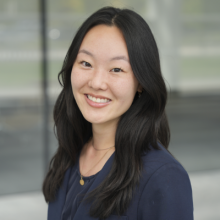
Minneh Song, Marketing Director
University Program, Class of 2028
What made you decide to join Doc Opera?
I joined Doc Opera as an M1 due to a bit of healthy peer pressure from my friends. In hindsight, I'm really glad they encouraged me to step outside my usual comfort zone.
What is your favorite part of Doc Opera?
My favorite part of Doc Opera is seeing the culmination of all of my talented classmates' hard work during tech week and the show!
How do you balance a rigorous academic schedule and Doc Opera?
You might have to ask me after tech week…
What skills from medicine help you in Doc Opera—and vice versa?
Medicine and Doc Opera are both collaborative efforts that require dedication, open communication and teamwork to achieve a common goal. I will take the new experiences I've had through dancing in Doc Opera to push myself outside my comfort zone in medical school and beyond.
Why is it important to raise funds for CWRU's student-run health clinics?
CWRU's student-run health clinics help serve the most marginalized patients in our Cleveland community. These clinics provide accessible, high-quality care to patients, while also helping to train the next generation of physicians and health professionals. Funds raised through Doc Opera for CWRU's student-run health clinics ensure that we can continue serving our community!
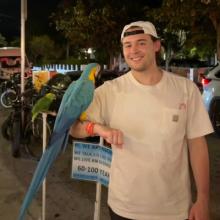
Braden Lau, Finance Director
University Program, Class of 2028
What made you decide to join Doc Opera?
I was encouraged to join Doc Opera by two of my friends who happened to be choreographing last year (and are now two of our dance directors). I was a bit unsure about it at first because I had never danced/participated in theater before. However, it ended up being an amazing experience, so much so that I became a director for this year's show!
What is your favorite part of Doc Opera?
My favorite part about Doc Opera is that it brings the entire school together and truly builds a sense of community within the School of Medicine. I have become friends with so many people that I may not have otherwise met due to my involvement in Doc Opera!
How do you balance a rigorous academic schedule and Doc Opera?
It is still a work-in-progress. My schedule can look fairly different on a week-to-week basis, so it takes some flexibility. Whenever I have gaps in my schedule, I will set time aside to attend to my duties as finance director.
What skills from medicine help you in Doc Opera—and vice versa?
Being flexible and adaptable is key. Sometimes we have to schedule impromptu meetings for unanticipated hurdles or more urgent matters. Medicine calls for the same abilities; there is always some level of unpredictability, no matter what field you are in. Expect the unexpected.
Why is it important to raise funds for CWRU's student-run health clinics?
The student-run health clinic depends on these funds to operate effectively to deliver care to the underserved individuals of Northeast Ohio. It is imperative that we raise these funds so they can continue providing excellent care for their patients.


